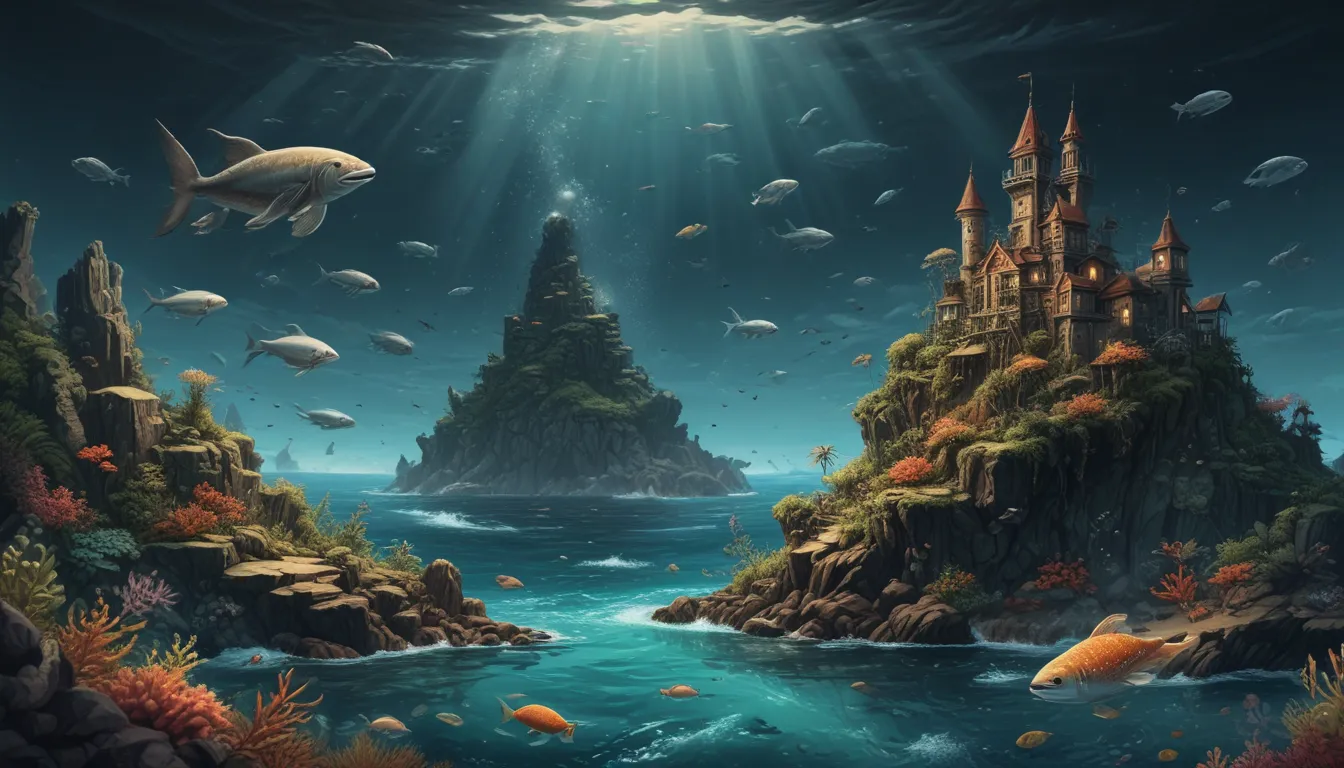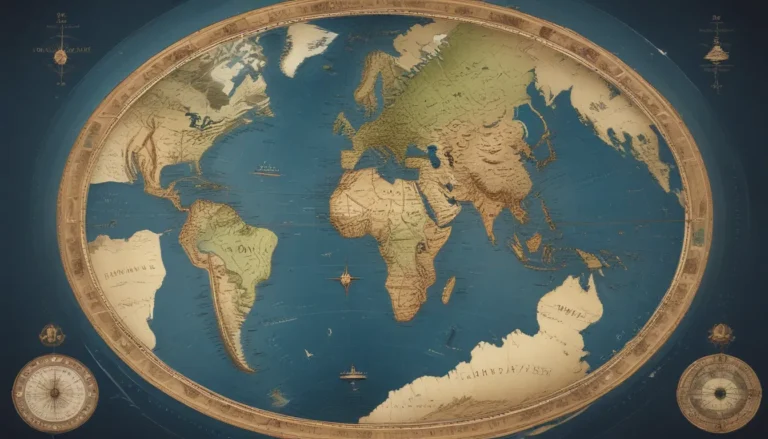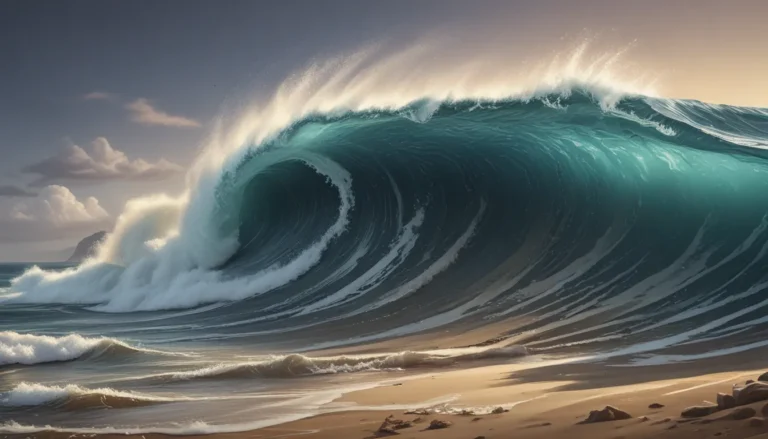A Note About Images: The images used in our articles are for illustration purposes only and may not exactly match the content. They are meant to engage readers, but the text should be relied upon for accurate information.
In the vast expanse of our oceans lies a hidden threat that is silently wreaking havoc on marine ecosystems worldwide – ocean acidification. This phenomenon, caused by increased levels of carbon dioxide (CO2) in the atmosphere, poses a significant risk to marine life, coral reefs, and fisheries. As we delve into the intricate web of facts surrounding ocean acidification, we uncover the urgency of collective efforts to combat this global issue and safeguard the future of our oceans.
The Origins of Ocean Acidification
Ocean acidification is a direct result of human activities, particularly the burning of fossil fuels. When CO2 emissions are absorbed by the ocean, they trigger a decrease in pH levels, causing the ocean to become more acidic. This harmful process disrupts the delicate balance of marine ecosystems and threatens the survival of countless species.
The Devastating Impact on Marine Life
The detrimental effects of ocean acidification are profound, especially on marine organisms such as corals, mollusks, and plankton. These creatures rely on calcium carbonate to build and maintain their shells or skeletons. With increased acidity levels, this crucial process is impeded, leading to a decline in population and disrupting entire oceanic ecosystems.
Vulnerability of Coral Reefs
Coral reefs, essential habitats for marine biodiversity, are particularly vulnerable to the impacts of ocean acidification. These intricate structures rely on calcium carbonate to thrive, making them susceptible to erosion and destruction as the acidification process weakens their foundation. The fate of coral reefs hangs in the balance, calling for urgent conservation efforts to protect these vital ecosystems.
Implications for Fisheries and Communities
The repercussions of ocean acidification extend beyond marine life to impact fisheries and the livelihoods of fishing communities. As coral reefs and other marine habitats deteriorate, fish populations dwindle, affecting the fishing industry and those who depend on it for sustenance. The ripple effects of ocean acidification are felt far and wide, underscoring the need for sustainable practices to preserve marine resources.
Unprecedented Rate of Acidification
The current rate of ocean acidification is unprecedented, estimated to be ten times faster than any time in the past 50 million years. This rapid change leaves marine organisms with little time to adapt, exacerbating the negative impacts on biodiversity and ecosystem stability. The urgency of addressing this accelerated acidification cannot be overstated.
Loss of Biodiversity and Global Implications
As ocean acidity increases, certain species struggle to survive, leading to a loss of biodiversity with cascading effects throughout the food chain. Ocean acidification is a global issue that transcends borders, requiring a unified effort from governments, industries, and individuals to reduce carbon emissions and mitigate its impacts. The preservation of marine biodiversity is a collective responsibility that we must uphold for the health of our oceans.
Coral Bleaching and Ocean Acidification
The link between ocean acidification and coral bleaching is undeniable, as increased acidity, combined with rising sea temperatures, contributes to the devastating phenomenon. Coral bleaching events result in the expulsion of algae from coral tissues, leading to the loss of vibrant colors and eventual death of coral reef ecosystems. This interconnected relationship highlights the complex challenges facing marine environments.
Maintaining Ecological Balance
Ocean acidification has the potential to disrupt the natural balance of marine ecosystems, impacting species interactions such as predator-prey relationships and symbiotic partnerships. The delicate harmony of marine life is at stake, underscoring the need for proactive measures to mitigate the ecological instability caused by acidification. Sustainable practices and conservation efforts are crucial to preserving the intricate web of life in our oceans.
Collaborative Solutions and Research Endeavors
In the face of escalating ocean acidification, scientists are spearheading research efforts to find solutions that mitigate its impacts and enhance the resilience of marine organisms. By studying the effects of acidification and developing strategies to reduce carbon emissions, researchers aim to protect our oceans and ensure the survival of diverse species for generations to come. Collaboration and innovation are key in confronting this environmental challenge.
Conclusion: A Call to Action
Ocean acidification presents a formidable threat to marine ecosystems, underscoring the urgent need for collective action to combat this global issue. By reducing carbon emissions, embracing sustainable practices, and raising awareness about the impacts of acidification, we can safeguard the health of our oceans for future generations. Education, advocacy, and proactive measures are vital components of the fight against ocean acidification, ensuring a sustainable and vibrant future for marine life and humankind.
FAQs: Answering Key Questions
- What is ocean acidification?
-
Ocean acidification refers to the process of increasing seawater acidity due to the absorption of carbon dioxide from the atmosphere, impacting marine organisms and ecosystems.
-
What causes ocean acidification?
-
The primary cause of ocean acidification is the burning of fossil fuels, releasing significant amounts of CO2 into the atmosphere, which is then absorbed by the ocean.
-
What are the impacts of ocean acidification?
-
Ocean acidification can hinder the growth of marine organisms, disrupt the food chain, and threaten the livelihoods of communities dependent on marine resources.
-
How can we combat ocean acidification?
-
To address ocean acidification, we must reduce carbon emissions, promote sustainable practices, and implement conservation measures to restore the health of marine ecosystems.
-
What can individuals do to help?
- Individuals can make a difference by adopting eco-friendly habits, supporting ocean conservation initiatives, and advocating for policies that protect marine biodiversity. Each action contributes to the collective effort to safeguard our oceans.
In the intricate tapestry of our oceans, the threat of acidification looms large, underscoring the interconnectedness of marine life and the urgent need for preservation. By understanding the complexities of ocean acidification and taking decisive action to combat its effects, we can protect the vitality and beauty of our seas for generations to come. Let us stand united in our commitment to safeguarding our oceans, ensuring a sustainable future where marine life thrives in harmony with nature. Together, we can make a difference in the fight against ocean acidification and preserve the wonders of our underwater world.






